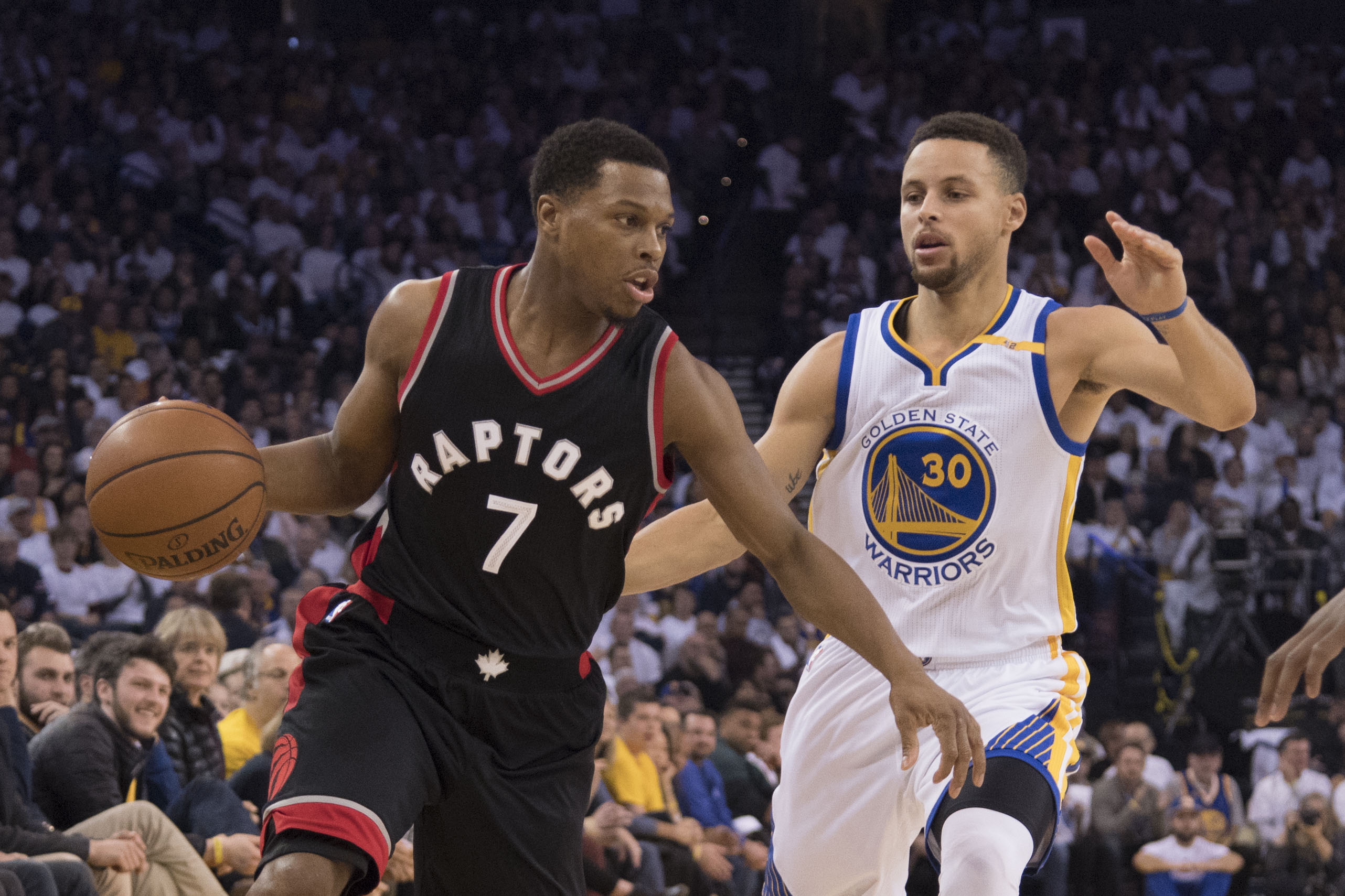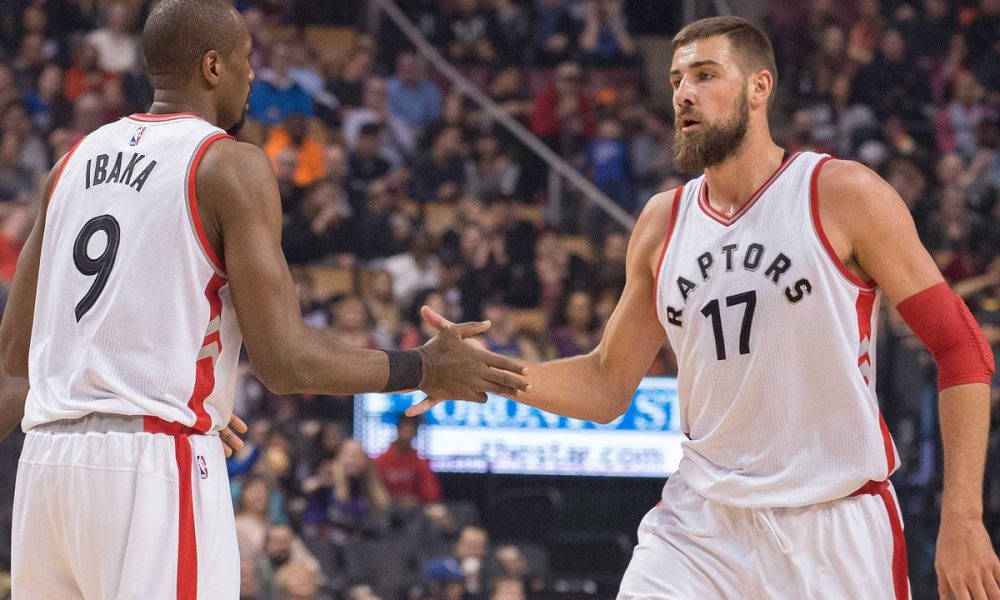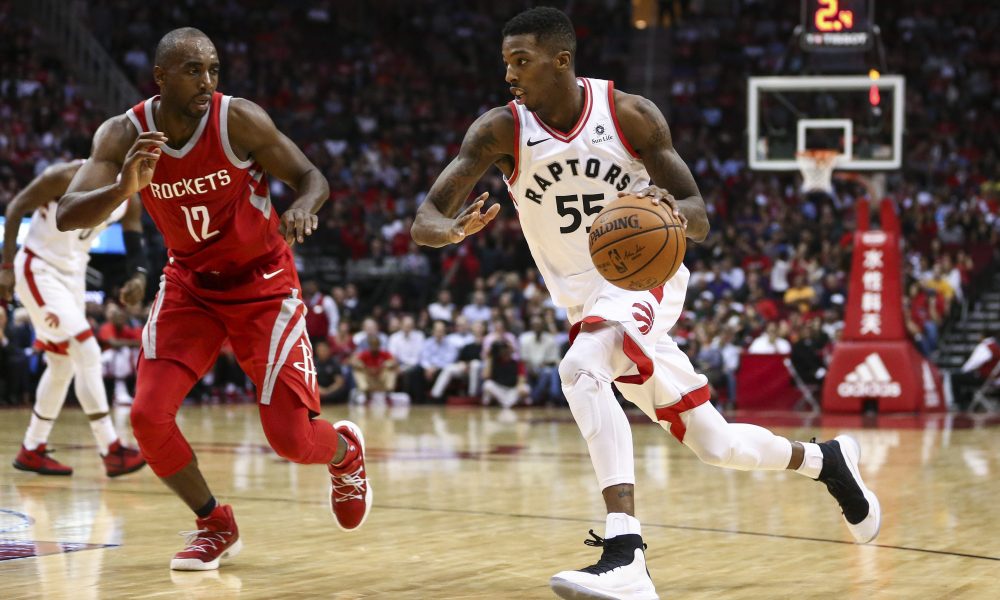Without a steady diet of iso-ball, who are these Toronto Raptors?
It’s hard to deny that getting away from the absurd amount of one-on-one play that used to dictate the personality of the Raptors has been a good thing, but at the same time, it’s left the club short of an identity. Their new “pass more” offence will be good for this team longterm, but they still aren’t a great passing team. The bench has been a revelation, often acting as a catalyst to kickstarting the club’s energy, but a team with Finals aspirations doesn’t want to rely on a very young bench to define their team’s identity.
You could question whether or not a team really needs an identity to be a power team in today’s NBA, especially when you are talking about something as ephemeral as an identity in an era that loves to quantify everything with statistics, but it doesn’t not matter. Identities are what unites a team, they give teams a focus, a personality, a calling card to be proud of. A club don’t need to be the Grit-n-Grind Grizzlies or the Seven Seconds or Less Suns, they don’t need a trademark-able mantra, but they do need something. A team can’t just be a collection of pretty good players, especially if they don’t have a superstar to define them. Professional teams need that personality that they sink back into to right the ship when things go awry, and right now the Raptors don’t have one.
Right now they have a starting lineup that doesn’t really fit together, despite everyone playing varying degrees of good basketball. As a group, they are defensively inconsistent, they can be turnover-prone, they appear totally indifferent towards the craft of rebounding, and they just don’t have a thing that they are known for. That said, Lowry and DeRozan are mostly playing terrific, especially when you consider how quickly they’ve adapted to a new offensive system. Valanciunas is usually fine, except for the nights that he’s not (which are fewer than ever). Ibaka hasn’t been as impactful as Ujiri had probably hoped when he acquired him, but he’s been mostly steady (save for posting the second-lowest rebounding percentage of his career).
Norman Powell has been a surprising disappointment as a starter, but he looks undeniably ill-at-ease playing with this starting five. He’s relegated to a fifth option, he almost never gets to handle the ball, and his decision making makes it look as though he has trouble reading the game (which we know from his first two seasons isn’t an actual flaw in his game). His (temporary?) replacement, OG Anunoby, has played one great and one bad game as a starter, but OG is the new hotness in these parts and basically anything he can give this Raptors team is gravy considering he wasn’t even supposed to be playing yet.
The bench, of course, has been a revelation. They are top-ten amongst bench units in scoring, rebounding, shooting, and they are the best in the league in steals at 4.5 per game. They are the energizers, the squad that breaks open leads and disrupts their opponent’s flow. They are tenacious defenders, the win the hustle plays, and they maintain a high compete level despite having to share minutes with literally all of their teammates. Delon Wright and Jakob Poeltl have been wonderfully consistent and dependable, while Pascal Siakam, Lucas Nogueira and C.J. Miles have been less consistent but more spectacular when their ‘on’. In Toronto’s last two games, it was the bench that set the tone that led to a pair of convincing blowout wins.
All of which is a way of saying that there is nothing really wrong with where the Raptors are at. They are tied for third in the East at 9-5, their offence is ranked third in NBA, and they’re making about 20 more passes per game than they did last season. They’ll most likely cruise to another top-four finish and take another stab at making some noise in the Playoffs.
But see, that’s where things get…uncomfortable. This whole campaign is only worth something if the Raptors can do something new in the postseason. They’ve diversified the offence with an eye towards the postseason. They are giving everyone on the team run every game in an attempt to find the best combinations of players for an eventual springtime push. Yet, despite all of that, they don’t appear to have discovered what that thing is that is going to define them this April. They don’t yet look like they are building towards a new identity that they can use as a bulwark against the mental fragility that has been their calling card in every recent postseason.
Yes, the bench is a differentiator for the club, but the bench is also staggeringly young, and their level of experience makes it hard to look to them to be the catalysts for a stronger-than-normal Playoff run. The team’s defensive efficiency is hovering around 18th in the NBA, and that is mostly buoyed by the fact that the bench’s defensive efficiency is in the top-ten. While the one-on-one play has mostly abated, by leaning so heavily on the bench the club is once again utilizing a regular season strategy that won’t translate into the postseason, when rotations shrink and teams look to keep their best players on the court for as long as possible.
The question then becomes, what does the team do about it? Does management need to make more moves to better define the starting five? Does Dwane Casey make some hard calls about re-jiggering his starting five, despite the fact that no one is playing poorly enough to warrant a “demotion”? It’s been admirable that Casey, a coach that traditionally overplays his stars, has been willing to risk giving heavy minutes to very inexperienced players, but it’s hard to suss out if this is a means to an end or an end unto itself in his mind. Casey has been steadfast that no one loses their spot in the rotation without a) someone vastly outplaying them, or b) they themselves seeing a severe dip in play. This is a savvy way to keep everyone working hard, but it is a risky gambit: if someone gets injured and the club finds a rhythm without them, do you force them back into the rotation and risk upsetting lineups that are working? If the Playoffs arrive and everyone is still playing at a high level, do you risk sitting productive players that have earned the right to play and allow some resentful feelings to penetrate the squad when have traditionally been the most mentally vulnerable?
Perhaps its foolhardy to be worrying about the Playoffs on November 16th, 149 days removed from the start of the postseason. At the same time, though, everything about this season is about preparing for the Playoffs. The regular season is like a long, drawn-out rehearsal process for opening night on April 14. Just about everything that happens during those rehearsals is going to be looked at with an eye towards the big show, because for the Raptors, that’s all that’s relevant. The Raptors are good right now, but it’s still hard to pin down who this team is. What is their identity. What are they going to hang their hats on when the Playoffs roll around? What will they use to combat Milwaukee’s staggering length, or Boston’s tenacious defence, or, you know, LeBron? The answer can’t be “just wait until the point in the game when a five-man bench unit hits the floor”.
The Raptors aren’t in trouble, nowhere close, but they also aren’t yet something. The club has long been referred to as a team that no opposing roster is actually scared of, and they have 149 to find a reason to make teams fearful. They’ve done a great job of moving away from their iso-ball personality, we still just haven’t seen what personality ultimately replaces it.



